Vladimir Putin
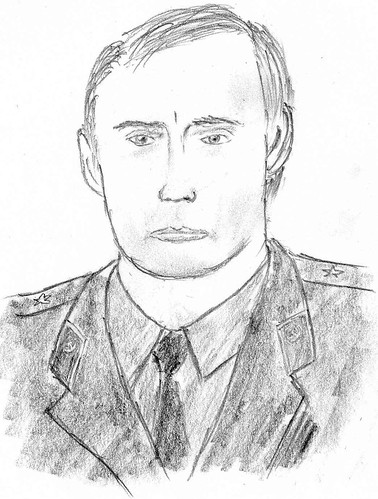
I do not know enough about Russia today to have a full assessment of Vladimir Putin. I am quite impressed by his political career. This man, hand-picked by the disgraced Boris Yeltsin to succeed him, went from obscure intelligence officer to an enormously popular and unchallenged master of a rising, confident Russia.
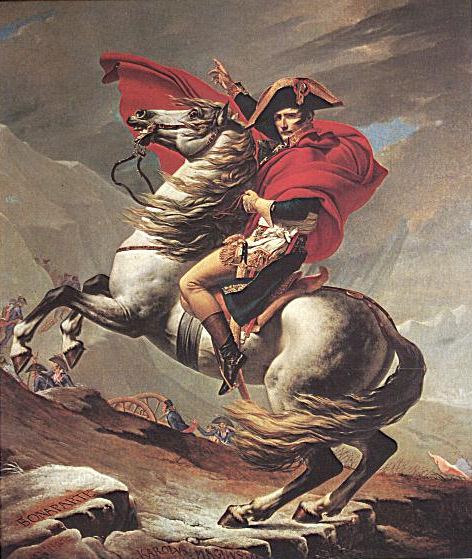
Image-building: Manly-Man, 1800s
I can't help but think of Napoleon Bonaparte (no doubt because I am reading about him). Both he and Putin faced the challenge of establishing a new regime atop the debris of a stillborn democracy. No small part of any political career is shaping perceptions of one's self: creating an image, taking credit for successes, dodging blame for disasters. A new biography of Bonaparte's rise emphasizes this aspect of him - publishing his own newspapers describing his military campaigns and victories, rushing home to France to explain when in the midst of disaster in Egypt or Russia - as the first modern spin-doctor.
Can it last?
As Bonaparte established his legitimacy on the prestige of his military victories in Italy against Austria, so Putin founded his regime on the successful and brutal prosecution of the war in Chechnya. He benefited from a spectacular recovery of the economy, in no small part due to the explosion of oil and gas prices. He took credit for ending the 'anarchy' that reigned under Mikhail Gorbachev and Yeltsin. He consolidated his power and that of the Russian state, manifesting itself in an arbitrary despotism, having journalists mysteriously murdered in grotesque ways and destroying the business empires of hated 'oligarchs'.
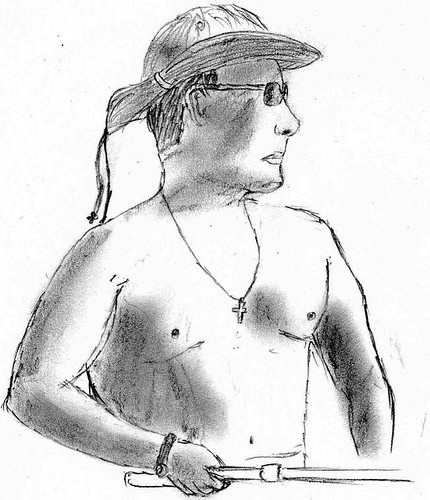
Image-building: Manly-Man, 2000s
Gorbachev and Yeltsin (rightly or wrongly) are sources of shame and embarrassment for most Russians. Gorbachev is perceived to have willfully sold out to the West and destroyed the great state. Yeltsin looked like an incompetent, drunk tool. Putin stood up to the United States and the West on Iraq and Kosovo. He ostentatiously reasserted Russia's influence in the 'near abroad' - the vast areas of the former Soviet Union home to many millions of ethnic Russians - engaging in coercive energy politics in Ukraine and invading parts of Georgia. He cultivates an image of virile power. So, we get photos of Putin bare-chested showing his manly musculature (beats Nicolas Sarkozy), as well as a book on being a black-belt judo master, and even a story of his saving people from a tiger. He successfully escaped blame for a number of bungled affairs from the sinking of the Kursk submarine to the Beslan school massacre.
I don't know what this will mean for Russia in the future. I would hope we see a kind of reconciliation between Russia and the rest of Europe. Can one dream of a Russia with a strong welfare state, a healthy population, a rich and diverse economy, liberal democratic politics, engaged - even integrated - in some way with European institutions? The Putin years seem to suggest something very different. The economic underpinnings of Russia today seem to me very narrow. A state characterized by a reliable flow of cash from energy coupled with an otherwise weak economy strikes me as a recipe for an unaccountable regime (a 'petro-state' in the jargon). However, the transition to Putin as Prime Minister, a very strange story, also suggests at least a kind of plebiscitary despotism.
If I am to indulge in the Bonapartist analogy once more, one vast difference between the two regimes is in their relationship to war and peace. General and First Consul Bonaparte of France become Emperor Napoleon I of the Grand empire. This was made through war. And it was the necessities of continuous war between France and its neighbors that led to the degeneration of the state into a purely military regime subjugating all of society and the continent for victory: it meant only conscription, taxation and the strangling of trade with England. The concentration of powers in Napoleon's hands became unlimited.
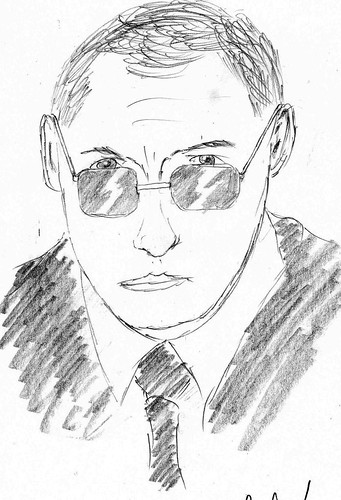
Shades
Putin has no more war. He rules a secure state. The vicious circle of war and dictatorship - what Doris Kearns Goodwin has called 'the iron ring of tyranny' - does not exist in Russia today. In the Soviet Union, the military-industrial complex and the bureaucratic state long justified its domination of society and the economy, and isolation from the world, in terms of the necessities of civil war, war with Germany, and the existential threat posed by American atomic superiority. The general peace of the world today means internationalist and democratic pressures in Russia face a good deal less obstacles than in the past.
Drawings for the first time with thicker graphite: detail tends to suffer and shading is rather more difficult but also allows for experimenting with spreading color with my fingers. Colors slightly enhanced. K.G.B. Fishing. Shades.
Labels: drawing, Russia, Vladimir Putin
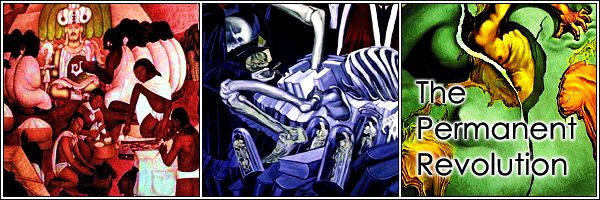


0 Comments:
Post a Comment
<< Home